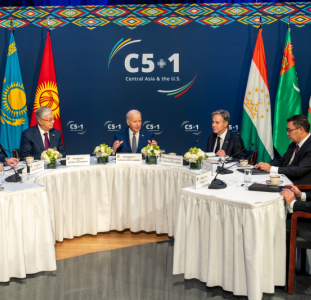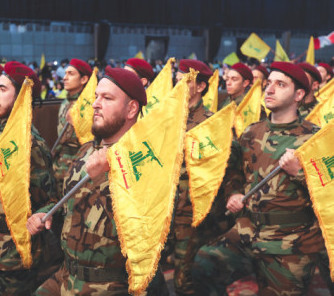Top stories from the Russian press on Thursday, May 19th, prepared by TASS
Kommersant: EC concocts 210-bln euro plan to ditch Russian energy
The European Commission has unveiled a 210 billion-euro plan to wean its member-countries off Russian energy by 2027. The key question is how to replace the 155 billion cubic meters of natural gas the EU imports from Russia. This will mostly require a rapid transition to renewable energies, which should make an unbelievable 45% of the bloc’s energy balance by 2030.
Under the REPowerEU strategy, Europe should review its energy policies to prevent gas and oil supply disruptions in the future. Russia has already terminated its gas supplies to Poland, Bulgaria, and Finland, who rejected the new rubles-for-Russian-gas payment plan, and so gas deliveries are anticipated to stop on May 20 or 21.
The EC has chosen three major fronts to cut its dependence on Russia: energy saving, more diversified deliveries and a rapid transition to environmentally-friendly fuels. Brussels estimates that the measures will require an additional 210 billion euro of investment by 2027 and 300 billion euro by 2030, on top of the funds already envisaged under a program to cut greenhouse gas emissions by 55% by the end of the decade from the 1990 levels.
If the EC succeeds with its scheme, both through a rise in energy efficiency and the introduction of renewables before 2030, its demand for Russian gas could be cut by more than 100 billion cubic meters, said Ivan Timonin at Vygon Consulting. To him, the goals to establish renewable energy facilities would be an extremely ambitious and complicated task.
"The proposed pace for building renewable energy facilities exceeds the historical one by far, and both substantial financing and access to ample volumes of materials, including aluminum, will be required," he said. The analyst also said that the target for renewables was being reviewed far too often: it has already been pushed up twice in the past 12 months alone.
Izvestia: Russian senator suggests Europe break free from dependence on Washington
Federation Council Speaker Valentina Matvienko said that presently she cannot see any politicians in Europe capable of making independent decisions. In an exclusive interview with the paper, she said Europe should "make a U-turn over the Atlantic" to get rid of its dependence on the US. The politician also questioned Finland and Sweden’s independence in deciding to join NATO and described the EU plan to phase out Russian energy imports as a donation to the US hegemony fund.
Matvienko believes the decision (on NATO membership for Finland and Sweden - TASS) was made under pressure from the West, mostly from the US and NATO, judging by the speed with which it was made. She finds it strange such a vital question did not even require a referendum. NATO will soon convene a meeting in Madrid where the two Nordic countries’ applications are expected to be approved, she said.
The decision to join NATO was not a sovereign one also because neither Finland, nor Sweden are facing any threats, Matvienko noted. Moreover, in one of his latest interviews, Finnish President Sauli Niinisto said he could not see and had never seen any threats emanating from Russia and that membership in NATO would not be aimed against Russia, but then against whom and what’s the purpose of it all, Matvienko wondered.
She also blasted the gas strategy adopted by the EU as anti-European, because it would inflict huge costs on Europeans. The speaker likened the decision to an extra tax the EU would pay for US ambitions and warned that the plan to reduce dependency on Russian gas and oil by 2027 could cost more than the preliminary estimate of 210 billion euros.
Vedomosti: Turkey may retract its opposition to Finland and Sweden’s entry to NATO under certain conditions
Turkey has put brakes on the approval process for Finland and Sweden to join NATO, the Financial Times and DPA reported. NATO ambassadors met on Wednesday aiming to open membership talks, but Ankara’s position stopped the vote, FT said.
Ankara’s opposition may delay the two Nordic countries from getting membership in NATO, Researcher at the Institute of Oriental Studies of the Russian Academy of Sciences Amur Gadzhiev believes. Turkey reminded the US-led military bloc that its defense industry was currently under sanctions, and it is also seeking to return to the F-35 program, so there seems to be no grounds for Turkey’s talks with Sweden and Finland.
Also, attempts by the US-led military bloc’s members to exert pressure on Turkey have traditionally triggered a counter-reaction. Ankara had expected that NATO would consider the major role Turkey has been playing in the alliance and meet its demands, Gadzhiev said. The hope that the NATO chief would take into account Turkey’s 70-year membership in the alliance was dashed, the expert said.
The parties to the talks will be able to reach an agreement fast and Turkey would unblock its opposition if the United States and the other NATO members, as well as Sweden and Finland would show readiness to meet Ankara’s demands, said Dmitry Stefanovich, a research fellow at the International Security Center with the Russian Academy of Sciences’ Institute of World Economy and International Relations. Although the Turkish demands do not look unfeasible, the pressure the US has been exerting on China to comply with the anti-Russian sanctions without offering anything in return shows that Turkey might be left without any carrot, and that would complicate things for NATO, he concluded.
Kommersant: Russian parliament puts resolution banning exchange of captured Azov fighters on hold
Russia’s State Duma stopped short Wednesday of discussing a draft resolution, banning the exchange of "Nazi war criminals". The lower house of parliament had planned to ban a potential exchange of Azov Battalion fighters, who surrendered in Ukraine’s Mariupol, but never put the matter on the meeting agenda.
Legislators will refrain from debating the ban so far, though the Russian authorities plan to put the fighters, who were entrenched in the Azovstal steelworks, on trial, a source told Kommersant. A resolution banning the exchange would confine Russia within overly strict boundaries, limiting its maneuver at talks or other actions as part of the special operation in Ukraine.
Lawmakers had backed the idea, but did not put it on the agenda of the May 18 meeting. According to a source close to the Duma leaders, related committees, including the Defense Committee, are drafting the resolution. The Defense Committee declined to comment. Two sources in the United Russia party said debates on the resolution were not being planned so far. "This is untimely," said one of them.
Russia wants to show the world evidence of atrocities committed by Azov Battalion fighters, yet the Duma’s initiative needs greater elaboration, according to the source.
"Is a captive soldier a war criminal or not?" political scientist Alexey Makarkin asked. "This is a tricky situation," he contended.
Vedomosti: Moskvich brand likely to produce Chinese cars
The Kamaz carmaker will localize the production of Chinese cars at Renault’s Russia plant in Moscow, two sources who are in the know about the company’s plans told Vedomosti. Production is expected to be launched no later than in the fourth quarter of 2022, of vehicles powered by internal combustion engines then it will move on to manufacturing electric cars.
Kamaz is in talks with its current partner, JAC, a source said. The Moscow government is also discussing a partnership deal with an unknown Chinese carmaker, he said. No principled decision on any model for production has yet been made, the sources said.
Kamaz and the Moscow mayor’s office declined to comment, while an Industry and Trade Ministry official told the paper that the Moscow government and Kamaz would soon hold a presentation of the production concept at the Moskvich plant.
Electric vehicles made by JAC are already known in Russia. The iEV7 model was used for a car sharing service in Crimea that closed last fall. And Kamaz is considering to localize the production of a more compact model, JAC iEVS4, a source told Vedomosti.
Renault’s Moscow plant that manufactured up to 180,000 cars a year paid off with just 40,000 to 50,000 cars produced annually, said Sergey Burgazliev, an independent automaking consultant. He said Chinese cars could be produced easily at the plant, yet problems with distribution could arise. JAC has so far been scarcely present in Russia, but auto dealers could accept that in the absence of other car brands, the expert believes.









